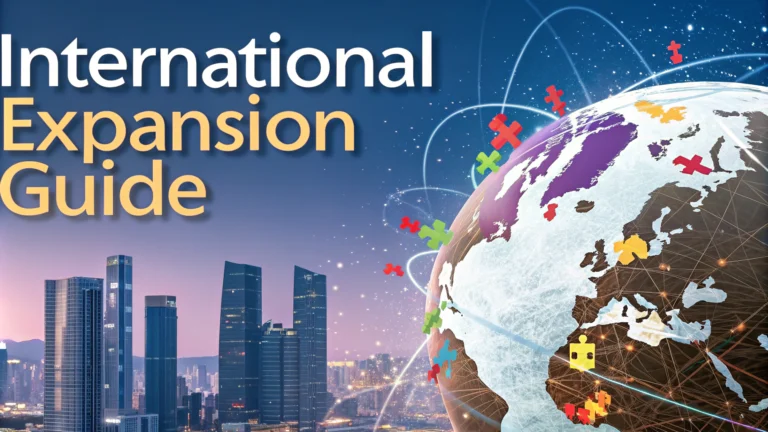International domain expansion requires strategic planning beyond basic country-level domain registrations.
Companies should consider multilingual domain variations to improve regional market penetration and search visibility.
Registering country-specific top-level domains (ccTLDs) like .uk, .de, or .jp can significantly boost local credibility and consumer trust.
Research shows businesses with localized domain strategies experience up to 50% higher regional engagement rates.
Technical Considerations for Multinational Domain Management
Implementing international DNS configurations demands precise technical understanding of geotargeting protocols.
Server location and IP geomapping play critical roles in determining domain performance across different regional networks.
Utilize content delivery networks (CDNs) to optimize domain loading speeds for international audiences.
| Domain Strategy | Regional Impact |
|---|---|
| Country-Specific TLD | High Local Credibility |
| Multilingual Domain | Broader Market Reach |
Legal and Trademark Considerations
International domain registration requires comprehensive trademark research across multiple jurisdictions.
Consulting intellectual property lawyers can prevent potential legal conflicts during global domain expansion.
Some regions have strict domain registration rules that mandate local business presence or documentation.
- Check regional trademark databases
- Verify domain availability
- Understand local registration requirements
Cost-Effective Domain Acquisition Strategies
Bulk domain registrations often provide significant cost savings for international expansion efforts.
Negotiate volume discounts with domain registrars specializing in multinational domain management.
Consider long-term domain registration to lock in pricing and prevent potential future price increases.
Monitor domain marketplaces for potential premium domain opportunities in target international markets.
SEO and Localization Best Practices
Implement hreflang tags to signal language and regional variations to search engines.
Create region-specific content that resonates with local cultural nuances and search behaviors.
Optimize domain metadata and structure for international search engine algorithms.
Regularly audit international domain performance using advanced analytics tools.
International Cybersecurity and Domain Protection
Domain security becomes exponentially more complex in international digital environments. Cybercriminals increasingly target multinational domain infrastructures with sophisticated attack vectors that exploit cross-border regulatory differences.
Implementing robust SSL certificates with extended validation across different regional domains provides critical protection against potential security breaches. Advanced encryption protocols must be consistently applied to maintain uniform security standards regardless of geographic location.
Regular security audits focusing on international domain portfolios help identify potential vulnerabilities. These comprehensive assessments should evaluate potential risks from different geopolitical contexts, technological infrastructures, and regional cybersecurity frameworks.
Companies must develop comprehensive incident response strategies tailored to diverse international legal and technological landscapes. This approach requires understanding unique regional cybersecurity regulations and potential cross-border legal complications.
Invest in advanced threat detection systems that can monitor domain activities across multiple international networks. Machine learning and AI-powered security tools offer sophisticated capabilities for real-time threat identification and mitigation.
Cultural Adaptation in Domain Strategy
Cultural sensitivity plays a pivotal role in successful international domain expansion. Domain names and digital branding must transcend literal translation and deeply understand local linguistic and cultural nuances.
Conduct thorough linguistic research to ensure domain names do not inadvertently create negative connotations or offensive meanings in target markets. Professional localization experts can provide critical insights into cultural communication subtleties.
Develop domain strategies that reflect regional communication preferences, including understanding local internet usage patterns, preferred digital platforms, and technological accessibility variations.
Collaborate with local marketing experts and cultural consultants to refine domain positioning and digital communication strategies. Their insider perspectives can prevent potentially costly cross-cultural misunderstandings.
Create flexible domain architectures that can be easily adapted to emerging cultural trends and technological shifts in different international markets.
Emerging Technologies in Domain Management
Blockchain and decentralized technologies are revolutionizing international domain registration and management processes. These innovative technologies offer enhanced security, transparency, and reduced intermediary dependencies.
Artificial intelligence is transforming domain acquisition strategies through predictive analytics and automated market assessment tools. Machine learning algorithms can now predict domain value and potential market performance with unprecedented accuracy.
Explore innovative domain registration platforms leveraging smart contract technologies to streamline international domain transactions. These platforms offer reduced transaction costs and increased trust through cryptographic verification mechanisms.
Cloud-based domain management solutions provide scalable infrastructure for managing complex multinational domain portfolios. These platforms offer real-time monitoring, centralized control, and advanced analytics capabilities.
Stay informed about emerging top-level domain (TLD) innovations and alternative domain registration models that challenge traditional internet naming conventions.
Conclusion: Strategic Global Digital Positioning
Successful international domain expansion requires a holistic approach integrating technological, cultural, legal, and strategic considerations. Organizations must view domain strategies as dynamic, evolving frameworks rather than static infrastructure elements.
Continuous learning, adaptive technologies, and a commitment to understanding diverse global digital landscapes are essential for maintaining competitive advantages in increasingly interconnected markets.
By embracing comprehensive, forward-thinking domain management strategies, businesses can transform digital real estate into powerful instruments of global brand communication and market engagement.

